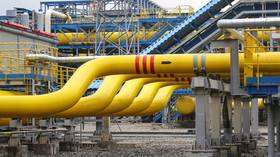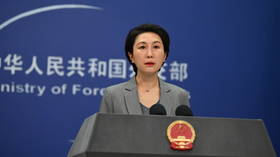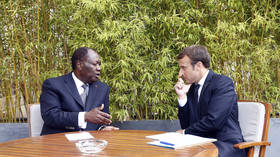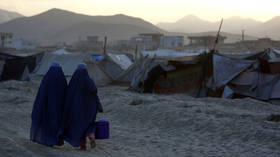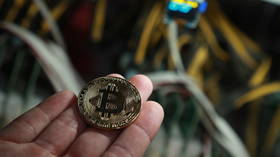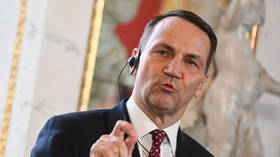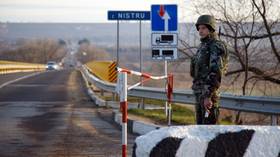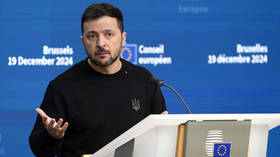New definition of extremist: ‘Anybody who challenges the established order’
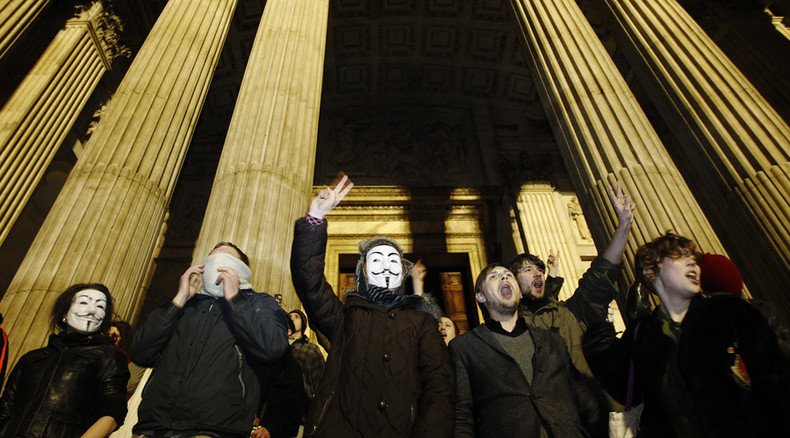
There is a worrying and dangerous tendency in the UK to label as extremists anybody who poses a challenge and who wants to protest against the unfair economic system that exists in the UK, journalist and broadcaster Neil Clark told RT.
City of London police have been attacked for pigeonholing an anti-capitalist group, alongside Al-Qaeda and IRA. An anti-terror presentation for nursery and school staff featured a picture of the Occupy London campaign alongside images from the 7/7 London bombings in 2005 and an IRA attack in 1996. The anti-inequality group was also categorized as an example of domestic extremism.
RT: As we've heard London police have placed movements like the Occupy London movement alongside international terrorist groups. What are your thoughts on calling movements like these extremist?
Neil Clark: I think this all fits in with what’s been happening here in Britain because the government has got this new so-called ‘counter extremism initiative.’ They want to bring in a bill and… their definition of ‘extremism’ is deliberately designed to bring in people who challenge the established order. Of course it’s not just simply about terrorists; it’s about anybody who criticizes the capitalist system, anybody who poses any kind of challenge, and anybody who wants to protest against the existing very unfair economic system that we’ve got in Britain. This is worrying, this is dangerous.
I think we’ve got the biggest threat to our civil liberties in Britain at the moment under this government of David Cameron that we’ve had for many, many years - over 100 years certainly. I remember Cameron a few weeks ago made a very sinister speech when he said that for too long we’ve been a passively tolerant society [and] we’ve got to change that. And he said that in the past people who were not causing trouble would be left alone, and we’ve got to change that - I think it’s very sinister, really, because he is trying to clamp down on legitimate dissent.
RT: Why do you think the intention of the authorities was here?
NC: It’s very clear that what the intention of the authorities is to try to group together anyone who challenges the established order, and to group them all together as terrorists and extremists. So anybody who has any kind of dissenting views that wants to change our economic and political system will be equated with and put together with the most appalling terrorist groups like Al-Qaeda. This is all deliberate, it is all what it’s meant to do is meant to frighten people into conforming. And who wants to be equated with Al-Qaeda, let’s face it? But what they are doing, the authorities, are trying to use this anti-extremism agenda to really try to clamp down on legitimate dissent, legitimate protest, because the aim is, as I said, quite clearly is to group all these people together: ‘Occupy London,’ Al-Qaeda, terrorists, they all are the same, they all are extremists people, animal rights people...
RT: Does labeling of this kind have any impact on individuals and groups that disagree with government policies?
NC: I think lawful campaign groups will be absolutely incensed by this because we are in a very, very dangerous position here in Britain – our civil liberties are threatened in a way they have not been threatened for hundreds of years, probably. David Cameron in that very sinister speech said that he thinks that we’ve been passively tolerant society for too long...
One of the repercussions of that is that the legitimate groups who don’t like the way that country is run, who don’t like our very oligarchal ‘bankocracy’ system of government, who, for example want direct democracy, environmental campaigners, animal rights campaigners- all these people are not happy with the way things are. They were quite rightly being sensed that they are being bracketed with groups like Al-Qaeda. I think there is going to be a huge backlash to this, and that is the question of everybody who is dissenter drawing together now and saying: “Look, we’re not going to put up with this. We’ve got legitimate rights, we’ve got our concerns about the way the country is going, and we’re not going to allow ourselves to be branded extremists simply because we disagree with Mr. David Cameron.”
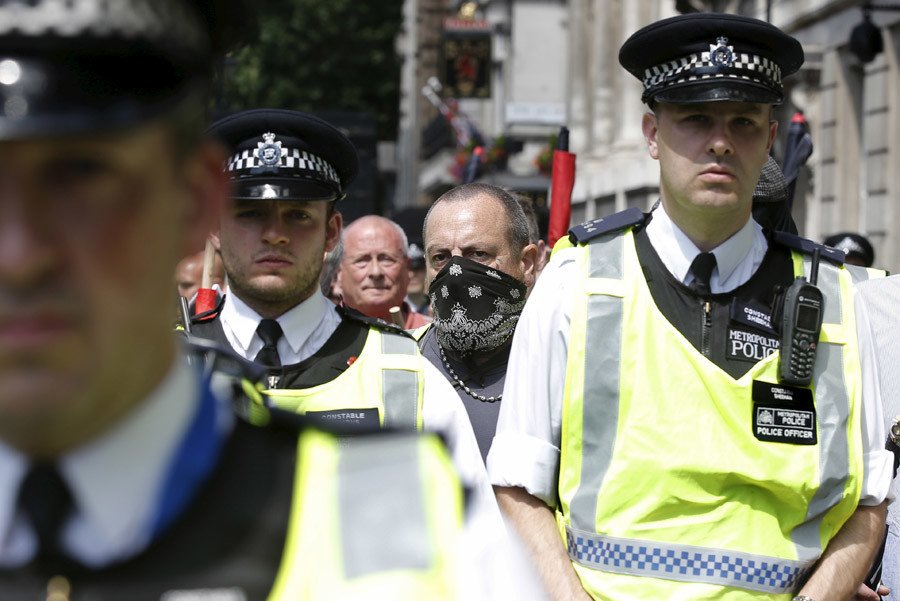
RT: Why are the authorities wary of protest movements? After all, they have a legitimate right to their opinion...
NC: Yes, I think that the City of London police has been accused in the past of not doing enough against the criminals in the City, the corrupt ‘banksters’, the financial crooks if you like of the City of London, and instead focus the attention on the petty crimes. You’re more likely to be arrested in the City of London for pick-pocketing than you are for doing a bank fraud worth millions of pounds. So I think that for the City of London police this is very regrettable. And they can’t just say they didn’t know what they were doing. The Occupy movement was very popular, the people made a legitimate statement against the kind of hardcore capitalist system that operates now in Britain. I think it’s a shame on the City of London police for doing this because their job is to be catching criminals and focusing on big criminals, not on trying to smear and put together legitimate protest groups with the most awful terrorist groups like Al-Qaeda.
RT: Can civil disobedience ever be linked to terrorism?
NC: They are doing that. I think the word ‘extremist’ is a very subjective term. The way that the British politics has gone over the last 30 years is that for anybody who holds the sort of what used to be a mainstream in the 1960-70’s in Britain, and I do: mixed economy, a fairer society, anti-war positions. Anybody who holds these views now is at risk of being labeled an extremist. We’ve gone so far to the neo-liberal right in this country; the neo-conservative takeover of power, the neo-conservative and neo-liberals that they brand anybody who doesn’t agree with their agenda as extremists.
The irony is that the biggest extremists are the British government at the moment. They are the ones who have been backing terrorists in Syria who they call rebels; they are the ones who have enabled and facilitated the rise of ISIS with their Middle East policies - these are the real extremists. They are the people who are pursuing extremist economic policies, extremist foreign policies, and they have the audacity to label people who want a more democratic Britain, to get back to the kind of fairer society that we had in the 1960’s and 1970’s in this country. They have the nerve to label these people as extremists, so it’s quite Orwellian. It is beyond George Orwell where you’ve got the moderates- other people who are being labeled as extremists. And the real extremists are the people in power at the moment in Britain.
‘The real terrorists are not those in tents’
Matthew Varnham, Occupy London's legal advisor, suggests the UK government is labeling the movement as anti-social behavior just because it doesn’t fulfill their criteria of what they would like to see as protest.
RT: As we've heard City of London police have placed the movement you represent alongside international terrorist groups. What are your thoughts on being called an extremist?
Matthew Varnham: The fact is that being labeled an extremist is nothing new. In 2011, we were labeled ‘domestic extremists’ through the City of London’s terrorism and extremism update. London’s mayor, Boris Johnson, also referred to the protest as a ‘boil’ that needs to be removed. So it’s nothing new but it does disturb me that the City of London and the police would see a peaceful protest and a movement as something akin to terrorism. I find it particularly sickening that the movement was pictured next to 7/7 [London tube and bus bombings] and I would call on the commissioner, for example, to explain why those two images were next to each other.
RT: It’s been revealed that the mayor spent nearly £2 million pounds on policing a similar movement - Occupy Democracy. Was there any need to spend so much on policing dozens of protestors?
MV: That particular protest was held outside parliament in the run-up to the General Election and it was the most recent iteration of the Occupy movement. The policing of that protest was absolute and people were prevented from protesting on the square. That decision to close the square itself is actually open to a legal challenge currently being taken to the courts. What it does show is that a government - be it in the City of London, Square Mile or elsewhere - who is adamant that the rights of people who object to them are not going to be hurt. The real terrorists are not those in tents but are certainly the corporate and financial world… climate change, the melting ice caps… and high tuition fees. These are some of the things that Occupy was right about in 2011; its other things like that that they are raising now and the real terrorism are those who are introducing policies that prevent those view from being expressed.
RT: Does labeling of this kind have any impact on individuals and groups that disagree with government policies?
MV: The government is… looking at the issue of protesting the wrong way. It’s labeling it as anti-social behavior just by fact; it doesn’t fulfill their criteria of what they would like to see as protest. Protest isn’t going to fit in a particular box, it’s going to be messy and loud; it’s going to have an element of disruption. And the government increasingly can’t handle that.
*The following is a partial transcript of a press release sent out by Occupy London on July 21, 2015: Charges against 12 Occupy Democracy protesters were dropped [July 20] in the first two trials relating to the peaceful pro-democracy group's occupation of Parliament Square in October 2014. Charges included refusing to comply with a direction to leave and for being in possession of a prohibited article, namely tarpaulin. A further trial relating to charges of aggravated trespass was dropped previously.
The statements, views and opinions expressed in this column are solely those of the author and do not necessarily represent those of RT.
The statements, views and opinions expressed in this column are solely those of the author and do not necessarily represent those of RT.


